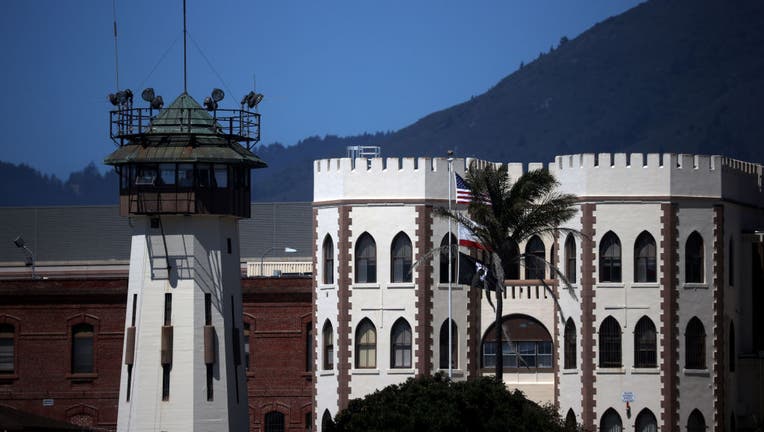California Supreme Court: Reducing incarcerated population by half at San Quentin put on hold

(Photo by Justin Sullivan/Getty Images)
SAN QUENTIN, Calif. - A court order to reduce the incarcerated population at San Quentin by half has been put on hold.
The California Supreme Court on Dec. 23 decided to send the First Court of Appeals decision, known as the Von Staich case, back to a lower court, meaning the October order to reduce the population by about 1,000 people is now vacated until further notice.
In that October decision, the appellate court justices said the California Department of Corrections and Rehabilitation’s handling of a coronavirus outbreak at San Quentin amounted to "deliberate indifference" and ordered the inmate population to be reduced to no more than 1,775 people.
However, the state Supreme Court found that the appellate panel made its findings based solely on written declarations and oral arguments, without hearing testimony from prison officials, inmates or medical experts.
Prison officials had denied this deliberate indifference and appealed the Von Staich decision.
"As the case now comes to this court, it appears that there are significant disputes about the efficacy of the measures officials have already taken to abate the risk of serious harm to petitioner and other prisoners, as well as the appropriate health and safety measures they should take in light of present conditions," the state Supreme Court justices wrote. "For this reason, we return the case to the Court of Appeal with instructions to consider whether to order an evidentiary hearing to investigate these matters before judgment is pronounced."
The justices told the appeals court to consider whether to order a hearing on the evidence, which could be conducted by a Superior Court judge.
"The decision is shocking, frustrating, and extremely disappointing," said Danica Rodarmel, state policy director for the San Francisco Public Defender's Office, who has been one of several attorneys urging for the release of incarcerated people who are elderly or are at high-risk for coronavirus.
Rodarmel said that the state Supreme Court's decision also means that Marin County Superior Court Judge Geoffrey Howard is not moving forward with a separate habeas case to expedite the release of the 300 or so people she and others represent at San Quentin. Before the state Supreme Court's ruling, Howard had started granting individual habeas petitions on behalf of elderly and medically vulnerable people in San Quentin. Howard has now vacated those orders, Rodarmel said, meaning they are on hold for now.
Rodarmel said it is unclear at this time what the ultimate outcome will be. But she added that Gov. Gavin Newsom has the power to release more people if he chooses.


